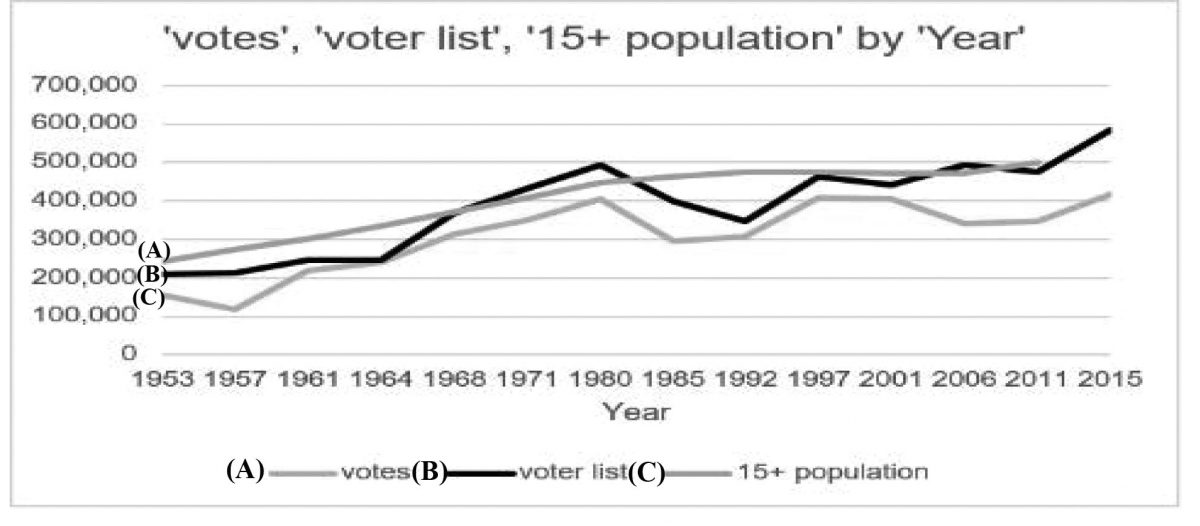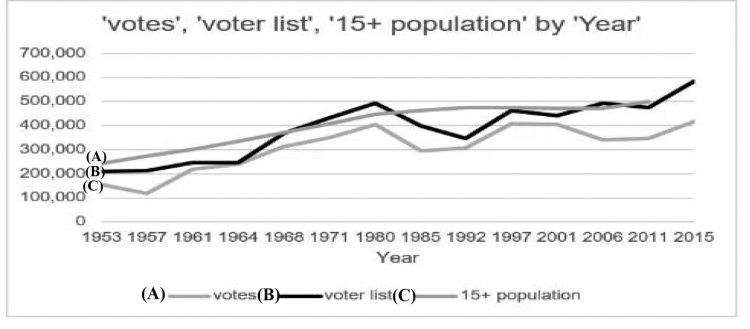Dear Editor
After 50 years, can the PPP and the PNC be relied on to solve the constitutional and electoral problems they have created and sustained? These two parties have been at the forefront of every constitutional and electoral law, legislation, and administration since 1964 when, as British Guiana’s principal representatives they agreed to arrangements devised by the British Government, who had grown impatient with their intransigence. They have both had significant terms in government, yet neither party has seen it fit to lead non-partisan national efforts to address problems about which they were vehement when in the opposition. In fact, they have either foisted or perpetuated constitutional reforms that allow a maximum leader to consolidate the power of the central government at the expense of: accountability to constituents, independence of elected officials, neutrality of the public service, and impartial appointments to statutory bodies established to protect and preserve the public interests.
Election fraud is the usual trope for either parties when they are not-the-winner-take-all in elections. The use of dead and migrated voters on padded registration lists has been a clarion call since the first post-independence election in 1968. Compromised election day officiating is always cited to explain individuals voting multiple times, votes discarded or rejected, and extra marked ballots in the box. Inaccurate counting and tallying of the votes, whether at polling stations, and regional or central locations have also been claimed in every election. Election petitions have often been requested, most have not been granted, and none has led to a recount. In fact, it is only when there was significant international pressure (pre 1992 and post 1997) that there has been some superficial modification of the electoral system and the constitution.
In order to explore the stories of padded lists, election outcomes, the relationship between voting age population, the numbers of voters listed and voter turnout over the period 1953 to 2015 were charted. The Caribbean Elections website (www.caribbeanelections.com/) provided voter information and Guyana’s population census (statisticsguyana.gov.gy/ census/) provided the closest approximation of the voting age population (i.e. the 15+ age groups, since the data on the voting age, 18 year and older population is not readily available). Note: non-residents not included in these census data.
There were two periods when the voters’ list grew to exceed the number of Guyanese residents in the voting age group. The first period was (circa 1968 to 1980) during the PNC’s initial years in government. The second period (circa 1992 to 2006) during the PPP’s initial years in government. Rumour, supported by some evidence, has it that dead and overseas voters padded the list when the PNC handily won the post-independence elections (www.youtube.com/ watch?v=eyyROGJOjLI). Now similar rumours of dead and overseas voting, have been surfacing (www.youtube.com/watch?v=S_ANBYkb-vg) since the PPP assumed office.
Voter turnout rose and fell in-step with the rise and fall of the voters’ list over most of the 50 years, except, in two periods: 1980 to 1992 and post 2006. The lower levels of voter turnout occurred during the declining years of the PNC (in the 1980s) and the PPP (in the 2000s) governments. What makes the current allegations about a padded voting list most intriguing, is the incumbent (a PNC-led Coalition) government’s claim that the major opposition party (PPP) had the dead and non-residents voting in 2020.
The current recount of the 2020 ballots provides an excellent opportunity to test the election day and tabulation frauds allegations. There are assertions being made, some supported by evidence (or access to evidence) that there was malfeasance committed in polling places, many unreported on election day. Compiling verified cases of falsified, miscast, mis-allocated votes could provide evidence of malfeasance and provide some measure of the scale and impact of these activities on the final count. More importantly, it could be used to determine if election day security measures were adequate or in need of significant improvement. What is obvious is that both the PPP and the PNC are well versed in these types of malfeasance.
This brings us back to the opening question: can these two parties be trusted to fix problems which they have been instrumental in creating and perpetuating over the past 50 years? Take for example, GECOM, this supposed autonomous agency responsible for preparing and managing the elections, has seven commissioners appointed either by the leader of the PPP (Opposition) and/or the leader of the PNC (Government). Another example, Parliament, which is supposed to support GECOM financially and impartially, is also under the control of the PNC or the PPP, who manage small coalition parties’ through party lists. Then there is the interim leadership in the High Courts resulting from the two parties’ intransigence. These two parties have so entrenched themselves, one is left to muse, ruefully, about what would be required to bring about the changes Guyana so desperately needs.
Beyond the immediate concerns of COVID-19 and the massive economic crisis in the country, Guyanese must also commit to dealing with the long term political crisis that has blighted the country for 50 years. I would suggest neither the PPP nor PNC, alone or together, is capable of holding Guyanese from falling into the yawning chasm that awaits. The recount is not the end, it is only the beginning of a torturous trek. Young nationalists with un-impugned reputations will have to stay strong and lead the way, if Guyanese are to endure, survive, and embrace the promise it has long been denied.
Yours faithfully,
Rory Fraser






